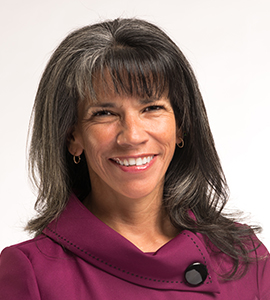For those attending the upcoming SEMPA conference in New Orleans, Vituity is looking forward to meeting you. We’ll be at booth #200 each day. Stop by and ask us how to make joy in medicine part of your career.
We’re quickly approaching the season for medical association conferences — your opportunity to investigate new career opportunities, deepen your medical knowledge, and meet like-minded professionals
If you’re an extrovert who loves working a crowded exhibit hall, you probably can’t wait to get started. If you’re an introvert, you may be looking at conference hall maps to find the fastest route to the workshop classrooms. No matter how you feel about attending conferences, you can maximize their worth with the right planning and mindset. The following tips should help make your next conference invaluable.
Before You Go
1) Consider your goals.
If you will be looking for your first job as an emergency medicine provider or are anticipating a move in the next year, plan on attending with a job seeking mindset. You’ll want to spend time meeting prospective employers and evaluating whether they would be a good fit for you. Before you go, read up on the organizations that interest you most: those with the right-sized team, philosophy, location, and tools to support your joy in medicine. That way you can create a priority list of employers that meet your goals. Consider contacting some of them in advance to let them know you’re looking forward to meeting them. Then, check out the event schedule to see where their recruiting booths are located and when they will be hosting receptions. Leave the jeans behind and come prepared with the right wardrobe and questions so you can make a great first impression.
2) Review the conference course agenda.
Create a plan that matches your learning goals. Find out whether the sessions require preregistration. If so, the most popular courses fill up fast, so you’ll want to register ASAP. If you’re a new grad, pick the meat and potatoes courses to broaden your knowledge base and expose yourself to practice lines you’re less familiar with. If you’re an experienced provider, consider doing a deep dive into your practice area.
At the Conference
3) Start your conversations early.
Don’t wait until the last day of the conference to start talking with employers. Finding a good match takes time (and may not happen over the course of one or two conferences). While you need to sell employers on your skill set, you also want to learn about their work environments. Ask questions that address the issues you’re most interested in. For instance:
- What do they do to support their providers?
- Can they offer long-term support for your career, such as the opportunity to move between practice areas or locations?
- Do they offer leadership and administrative opportunities that promise advancement?
- Do they promote a good work-life balance that makes your position as a provider more than just a job?
If you can’t take notes while talking, make sure to grab printed collateral and note your observations on the back before dropping it in your bag.
4) Focus. Stretch your mind. Take a break.
Conferences provide a wealth of learning opportunities, and it’s great to take advantage of them, going outside your practice area to stretch your brain. But if you attend workshops all day, nonstop, you may find the experience overwhelming. Most conferences offer lighter fare to give your brain a mental break from medicine, science, and serious health issues. Build fun lectures and entertainment into your schedule. And don’t be afraid to leave the building and walk outside for 15 to 20 minutes for some fresh air. Rather than missing out on something, you’ll find it improves your focus when you go back inside.
5) Network.
Meeting peers from similar work environments in your preferred geographic area can lead to great relationships — even long-term friendships. In our business, connection is key. So plan to attend at least a few receptions. If you’re the kind of person who gets sweaty palms thinking about a networking event, consider going with a friend. Even if you go alone, realize that your hosts’ goal in entertaining is to meet colleagues and new recruits. They will not leave you stranded awkwardly in the corner. Come prepared with some questions to start a conversation, and trust others will work to keep it going. Finally, make a point of saying goodbye, and leave your business card so they can follow up with you after the conference.
6) Enjoy the scenery.
Most conferences are held in popular tourist destinations. If you can, add an extra day or two to your trip to tour the area and enjoy its food and culture. There is no time like the present to start balancing work and leisure in order to make a career in emergency medicine sustainable.
Back Home
7) Organize your literature.
You know all those brochures, fliers, and business cards you threw in a bag as you wandered the exhibit hall? Before you begin to forget who was who, organize the materials and add new contacts to your contact list. If you didn’t take notes during the conference, write down everything you can remember about the people you met and the impressions you had.
8) Follow up with new contacts.
You never know when a new contact may influence your career. Send follow-up notes to everyone you spent time talking with and send thank yous to the hosts of the events you attended. Building bridges doesn’t have to take long and can prove invaluable over time.
For those attending the upcoming AAPA conference in New Orleans, Vituity is looking forward to meeting you. We’ll be at booth #910 each day. Stop by and ask us how to make joy part of your career.
This post first appeared at Feminem.org. Originally published at Vituity.com May 14, 2018. Last updated March 6, 2019.























